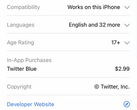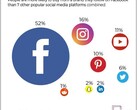UPDATE Nov 12, 2019: YouTube has clarified that the rewritten terms of service indicate that the website may restrict certain features or parts of its video streaming and hosting service. The company emphasized that the new terms of service do not imply that YouTube will delete accounts that do not make enough money.
Here’s a blunt reminder for content creators on YouTube: YouTube can delete channels at its sole discretion if it deems the channel is “no longer commercially viable.”
That’s according to YouTube’s new terms of service, which are set to go into effect on December 10. While the video platform is quick to point out this clause (or, at least, one similar to it) has always been a part of its terms of service agreement (ToS), YouTube is rewording its ToS to emphasize this clause and make sure that all creators are well aware of the company’s right to shut down problematic channels.
While many users and creators alike are crying foul (especially on Reddit), it should be noted that YouTube is a private company that is legally beholden to stockholders to make money. To that end, it is fully with YouTube’s rights as a corporation to restrict its service in the pursuit of higher revenues and profits.
However, the new ToS are once again raising the question of whether YouTube should be considered a platform or a publisher. The distinction is extremely important, especially considering the communications and content that occur on YouTube. On a surface level, the difference between the two terms primarily comes down to who is responsible for what is said via the channel in question.
A quick disclaimer: Notebookcheck should not be considered a source of legal information. However, the defining differences between a platform and a publisher have been hotly debated topics for years, and it would do well to offer a bit of clarification.
A platform merely acts as a medium for people to communicate and thus is not held responsible for the speech that is said on or in it. A publisher actively curates and distributes content and is thus held fully responsible for everything said through its channels.
Think of the difference between someone speaking in a town square and someone writing a newspaper article. The individual speaking is held responsible for the speech they say in a town, while the newspaper is held responsible for the articles it publishes.
Currently, YouTube (like other social media sites) is seen as a platform. Like all platforms, YouTube has certain obligations to control the content it allows through its website to conform with laws concerning speech in multiple countries. However, if it shuts down channels in a way that could be construed as curation, then the company would be considered a publisher and would thus be responsible for all speech posted on its site.
Legally, this debate actually holds little weight. Per Section 230 of the Communications Decency Act, websites like YouTube are not held liable for posted content and are well within their rights to exercise “Good Samaritan” practices to “restrict access to or availability of material that the provider or user considers to be obscene, lewd, lascivious, filthy, excessively violent, harassing, or otherwise objectionable, whether or not such material is constitutionally protected.” The law is a bit nuanced and complex. You can read the full code here.
The debate about YouTube’s exact role in distributing content is sure to rage on in Internet forums, but as it stands, YouTube’s ToS are changing come December 10. With that update will surely come practices to ensure channels are conforming to the website’s rules and regulations.























